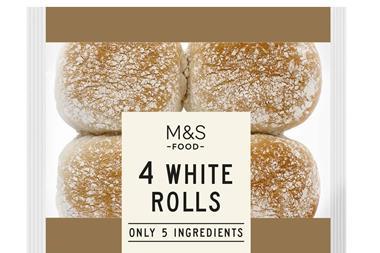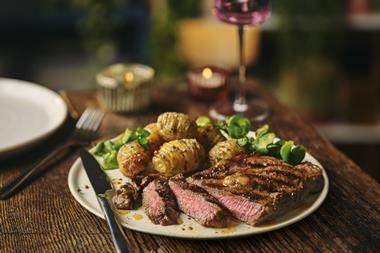Premier has unveiled plans to handle its debt by raising £404m of finance. Is it enough to mark a turning point for the company, asks James Ball
It's like anyone who spent a little too much when times were good and credit rolled freely. Premier Foods - and its chief executive Robert Schofield - often gives the impression it would rather everyone spent less time talking about debt and a bit more time talking about the rest of its business.
But as the UK's biggest food producer unveiled its annual results this Thursday, it finally proved it had faced up to its £1.8bn debt problem, revealing plans to raise £404m from shareholders and private equity group Warburg Pincus. It has also renegotiated its borrowings with banks and agreed arrangements with its pension fund trustees to cover any future deficit.
But will these steps be enough to mark a turning point? And when investors turn their focus back to Premier's underlying operations, will they like what they see?
Last year Premier relaunched several of its key brands, cut costs, closed factories and battled cost price inflation - but investors barely noticed. Instead, they nervously eyed Premier's borrowings as global credit dried up. These concerns drove Premier's share price down more than 70% year-on-year, falling as low as 16.25p in late 2008.
But some seem to have been wooed back by the new debt arrangements, as shares surged more than 20% on Thursday, rising to 35p - more than double December's low. News of Premier's internal progress is also promising. Premier accumulated its £1.8bn debt by buying up rivals Campbell and RHM (owner of blockbuster brand Hovis), completing the huge £1.2bn purchase of RHM in April 2007. Since its spending spree, chief executive Robert Schofield has worked to integrate the businesses and take Premier's huge branded portfolio forward.
Premier's sales grew 22.5% in 2008, reaching £2.6bn, though these growth figures are flattered somewhat as RHM was not integrated into Premier until partway through 2007. Trading profit, Premier's preferred measure of profitability, grew 14% over the year to £310.2m, while integration of the business and closure of nine factories achieved £53m of cost savings.
"One of the most pleasing aspects of the business in 2008 is how robust trading was during a tough period for consumer-facing businesses," says Schofield. "With the momentum developed in our grocery business over the last four months of 2008, combined with the successful relaunch of Hovis and the remaining integration synergies, we are well positioned for further progress in 2009."
But despite Premier's solid trading figures, the company is still making net losses. Interest payments on its borrowings, set to remain high for the foreseeable future, totalled £145m in 2008, almost half the company's trading profits.
After £100m restructuring costs, interest payments and a £194m goodwill writedown on Hovis, Premier made a net loss of £373.3m on continuing operations, almost ten times last year's £37.8m loss.
The company also revealed its trading margins had come under pressure in 2008, falling from 12.8% to 11.9%. Analysts suggest 2009 could be a difficult year to try to recover margin as retailers continued to battle fiercely on price
"Premier isn't completely out of the water yet," says one analyst. "Even though it's set to reduce debt and its negotiations with bankers mean concerns over covenants should be behind us, relatively high interest payments will stay into the medium-term. But there is, at least, the real possibility that debt will no longer be the single overriding issue for the company. Much still depends on how Premier's key lines fare with consumers over the next 12 months."
Following the frenetic re-financing work of recent months, Schofield can now turn his attention to navigating Premier's branded portfolio through this year's consumer-led recession. After making it through last year, he has reason to feel confident.
It's like anyone who spent a little too much when times were good and credit rolled freely. Premier Foods - and its chief executive Robert Schofield - often gives the impression it would rather everyone spent less time talking about debt and a bit more time talking about the rest of its business.
But as the UK's biggest food producer unveiled its annual results this Thursday, it finally proved it had faced up to its £1.8bn debt problem, revealing plans to raise £404m from shareholders and private equity group Warburg Pincus. It has also renegotiated its borrowings with banks and agreed arrangements with its pension fund trustees to cover any future deficit.
But will these steps be enough to mark a turning point? And when investors turn their focus back to Premier's underlying operations, will they like what they see?
Last year Premier relaunched several of its key brands, cut costs, closed factories and battled cost price inflation - but investors barely noticed. Instead, they nervously eyed Premier's borrowings as global credit dried up. These concerns drove Premier's share price down more than 70% year-on-year, falling as low as 16.25p in late 2008.
But some seem to have been wooed back by the new debt arrangements, as shares surged more than 20% on Thursday, rising to 35p - more than double December's low. News of Premier's internal progress is also promising. Premier accumulated its £1.8bn debt by buying up rivals Campbell and RHM (owner of blockbuster brand Hovis), completing the huge £1.2bn purchase of RHM in April 2007. Since its spending spree, chief executive Robert Schofield has worked to integrate the businesses and take Premier's huge branded portfolio forward.
Premier's sales grew 22.5% in 2008, reaching £2.6bn, though these growth figures are flattered somewhat as RHM was not integrated into Premier until partway through 2007. Trading profit, Premier's preferred measure of profitability, grew 14% over the year to £310.2m, while integration of the business and closure of nine factories achieved £53m of cost savings.
"One of the most pleasing aspects of the business in 2008 is how robust trading was during a tough period for consumer-facing businesses," says Schofield. "With the momentum developed in our grocery business over the last four months of 2008, combined with the successful relaunch of Hovis and the remaining integration synergies, we are well positioned for further progress in 2009."
But despite Premier's solid trading figures, the company is still making net losses. Interest payments on its borrowings, set to remain high for the foreseeable future, totalled £145m in 2008, almost half the company's trading profits.
After £100m restructuring costs, interest payments and a £194m goodwill writedown on Hovis, Premier made a net loss of £373.3m on continuing operations, almost ten times last year's £37.8m loss.
The company also revealed its trading margins had come under pressure in 2008, falling from 12.8% to 11.9%. Analysts suggest 2009 could be a difficult year to try to recover margin as retailers continued to battle fiercely on price
"Premier isn't completely out of the water yet," says one analyst. "Even though it's set to reduce debt and its negotiations with bankers mean concerns over covenants should be behind us, relatively high interest payments will stay into the medium-term. But there is, at least, the real possibility that debt will no longer be the single overriding issue for the company. Much still depends on how Premier's key lines fare with consumers over the next 12 months."
Following the frenetic re-financing work of recent months, Schofield can now turn his attention to navigating Premier's branded portfolio through this year's consumer-led recession. After making it through last year, he has reason to feel confident.














No comments yet